What Is the Electric Vehicle Homecharge Scheme?
- The EVHS can save you £350 on the cost of your home charging station
- There are hundreds of familiar car brands that are eligible for the scheme
- Currently the EVHS has funded the installation of 189,815 domestic charging devices
Important Notice
The Electric Vehicle Homecharge Scheme closed to homeowners on 31st March 2022 and is now known as the EV chargepoint grant.
It is now open to people who own flats, and people in rented accommodation.
If you’re considering an electric vehicle but unsure about the cost, it’s worth knowing about the EV Chargepoint Grant, the initiative run by the government that can save you money.
The EV Chargepoint Grant is only on offer for people who rent or own a flat – but if that includes you, then it's still worth taking advantage of.
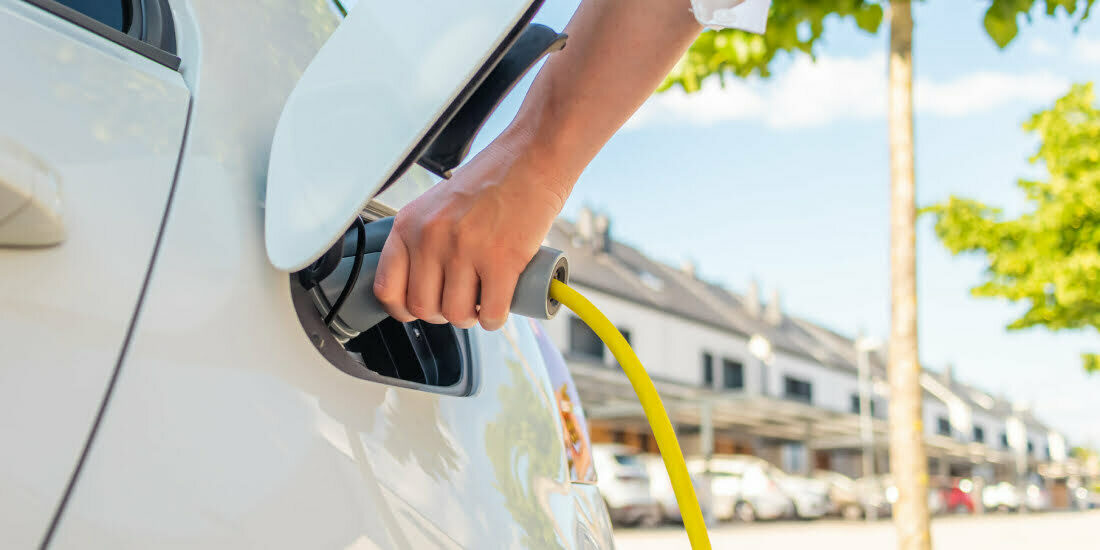
What's On This Page?
Click the links below and head straight to a specific section of the article.
- What Is The Electric Vehicle Homecharge Scheme?
- How Much Money Can You Save On The Electric Vehicle Homecharge Scheme
- How Does The Electric Vehicle Homecharge Scheme Work?
- What Are The Requirements For EVHS Grant?
- What Other OZEV Grants Are Available?
- What Vehicles Are Eligible For The Electric Vehicle Homecharge Scheme?
- How Successful Has The OZEV Initiatives Been?
- Summary
What Is The Electric Vehicle Homecharge Scheme?
The Electric Vehicle Homecharge Scheme (EVHS) now known as the EV Chargepoint Grant is a government initiative that encourages more of the public to buy electric vehicles.
It subsidises 75% of the cost of buying and installing a home recharging station, up to £350 (including VAT).
The initiative is run by the Office for Zero Emission
Vehicles (OZEV). The OZEV believes the majority of electric vehicle
owners will do the majority of their charging at home. Therefore, a
subsidised home charging system is a great way to entice people thinking of
buying an electric car. There has also been a surge in sales with used electric cars.
To qualify, you must:
- Own a flat or live in a rented accommodation
- Plan to use the charger on one of the 298 vehicles which are on the eligible vehicles list
- Be the vehicle’s primary owner
- Prove you already have an eligible vehicle, or have purchased one that will be delivered within 4 months of the charger’s installation date
- Have dedicated off-street parking at your property
The Office for Zero Emission Vehicles (OZEV) – runs the government scheme.
OZEV said it created the grant because “most plug-in vehicle owners will carry out the largest proportion of their charging at home.”
The scheme was originally available to homeowners, and is now being offered to a different sector of the market. Find out more about EV government grants.
You can see how many chargers have been installed throughout the UK in the interactive graph below.
How Much Money Can You Save On The Electric Vehicle Homecharge Scheme
The EVHS can save 75% off the cost of buying and installing as many as two charging stations, up to £350 per station.
How Does The Electric Vehicle Homecharge Scheme Work?
If you already have an electric vehicle or are thinking about buying, the government guide will help explain in more detail along with customer requirements for the grant eligibility.
Once you've made sure you can qualify, there is an EVHS installation form you can fill.
Although it’s worth noting that you won’t qualify if you apply more than six weeks before the installation.
When you’ve completed the application, you can view this list of approved installers and then choose a company you’d like to buy a charging station from and send them your application.
The installer will then claim the government’s subsidy on your behalf, so all that is required from you is to pay the discounted rate.
Once completed you can enjoy having your own home charging station for your car. Then you can enjoy all the benefits that come with a home charger, mainly that it'll typically save you £449 per year over charging in public.
What Are The Requirements For EVHS Grant?
In order to qualify for the EVHS, you must have one of the following criteria:
You own a new or second-hand electric vehicle since 1st October 2016 that is eligible on the EVHS scheme. You also haven’t applied for any previous charge point schemes
You can show proof of purchase for an eligible vehicle
You’ve leased an eligible vehicle for at least six months
You’ve been given an eligible company vehicle for a minimum of six months
Your employer has listed you as the primary user of an eligible vehicle for at least six months
All of the above criteria must have happened on or after 1st October 2016.
Can I Apply At Home?
Yes, if you take a look at the government guide for advice and then you would just need to fill in the EVHS application.
Once you’ve completed your application, you need to send it to one of the approved installers.
Arrange an installation date that’s no later than six weeks from when you filled in the application, otherwise you won’t qualify.
The installer will then claim the EVHS grant on your behalf, and pass the savings on to you.
Can I Claim For My Business?
No, you can’t claim the EVHS for your business, but you can apply for a WCS grant offered by the OZEV which we’ve listed below.
What Other OZEV Grants Are Available?
Workplace Charging Scheme (WCS)
As well as the Electric Vehicle Homecharge Scheme, the OZEV offers an initiative for companies and charities called the Workplace Charging Scheme (WCS).
The WCS helps organisations who want to provide free charging to staff members who drive electric vehicles.
The government will not only cover 75% of your charging point costs up to £350, but they will cover a maximum of 40 chargers across all the company sites. As long as you’re eligible.
WCS Requirements:
To be located in Britain (i.e. England, Wales, Scotland, or Northern Ireland)
To be a registered charity, business, or in the public sector
Be a public authority, or a group that’s received less than £180,800 of public support in the past three fiscal years
You are able to explain the purpose of the charging points, or your plan to encourage members of staff to start driving electric vehicles
Accessible off-street parking space
You are the owner of the property, or you are able to get permission for the installation
What Vehicles Are Eligible For The Electric Vehicle Homecharge Scheme?
You’ll be pleased to know there is a wide range of car brands that are eligible for the EVHS. In fact, if you think of a manufacturer, it's likely they sell an eligible vehicle.
You can see the full list of eligible vehicles.
How Successful Has The OZEV Initiatives Been?
Below we’ve listed some statistics on the schemes from the OZEV. You can see how many sockets were installed throughout 2023 in the following interactive graph.
Home Charging Devices
As of 1st July 2023, OZEV funded grant schemes (EVHS and DRS) and have delivered 380,555 domestic charging devices since 2013.
The EV chargepoint grant has funded the installation of 3,433 sockets since the launch in April 2022.
The EVHS has funded the installation of 340,222 domestic charging devices.
Workplace Charging Devices
As of 1st July 2023, the WCS has funded the installation of 46,172 sockets in workplace carparks since the scheme started in 2016.
In the last 12 months, 12,701 of these WCS sockets were installed.
On-Street Residential Devices
As of 1st July 2023, the ORCS has funded 4,342 public charging devices which have been installed across local authorities in the UK.
107 charging devices were installed after being claimed for by the local authorities in the last 3 months.
Funding has also been awarded for 14,397 more ORCS charging devices to be installed in the future.
You can see more statistics from OZEV here.
Summary
So if you’re considering getting a charging point installed at your home, you could save yourself £350 by simply filling out an EVHS application form and sending it off to an eligible installer.
Providing your application meets all the requirements, the chosen installer will then claim the EVHS grant on your behalf.
If you represent a company that’s aiming to get your staff to go electric, the Workplace Charging Scheme (WCS) can save you up to £350 on up to as many as 40 charging stations.
The decision to switch to an electric vehicle and do good for the environment just got a whole lot easier.
Related articles
View all EV charging articles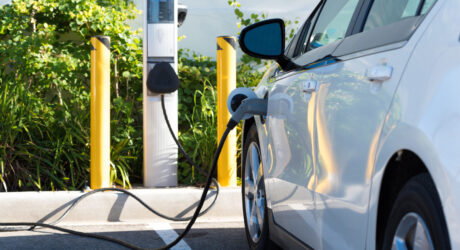
A Guide to Electric Car Batteries

EV Home Charger Installation Guide: How to Charge an EV at Home
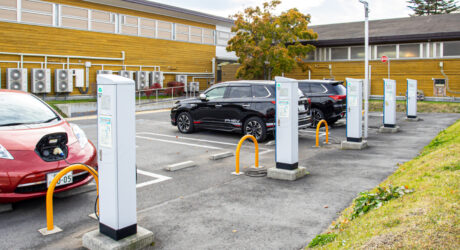
OZEV Grant: What Is It and Am I Eligible?

The Best Apps for Finding EV Charging Stations
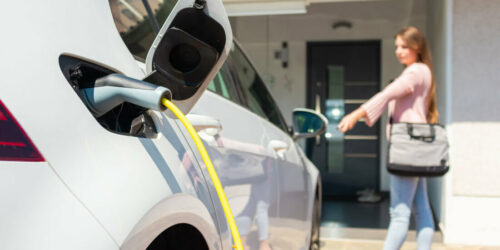
Electric Car Home Charging Stations: The Top Ten EV Chargers for Your Home

Should I Buy a Used Electric Car?
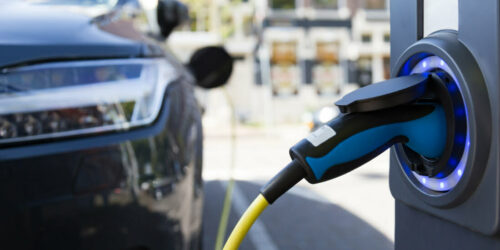
Electric Vehicle Range







